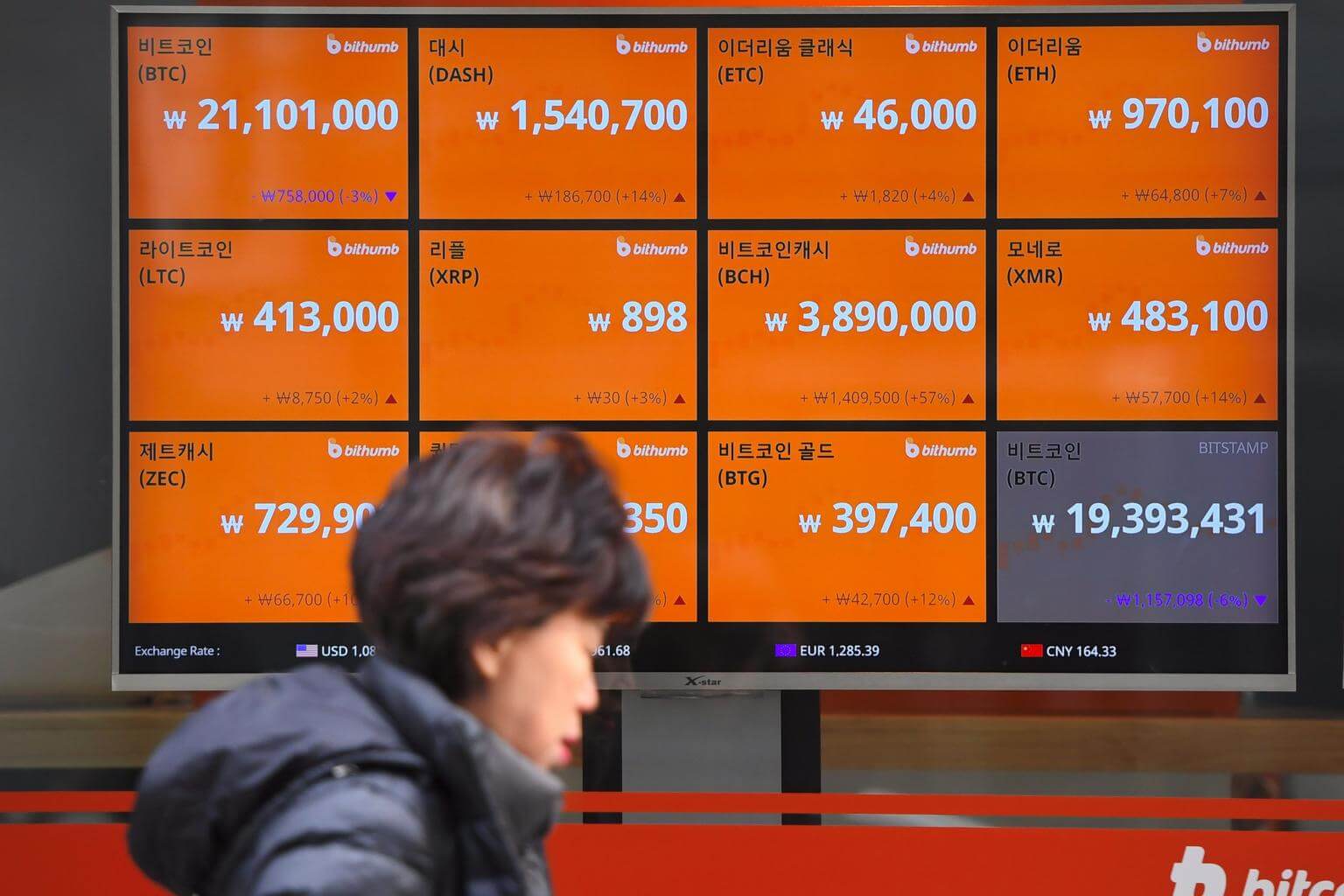South Korea starts real-name trading system for cryptocurrencies
Sign up now: Get insights on Asia's fast-moving developments

About 3 million people in South Korea are estimated to have invested in cryptocurrencies.
PHOTO: AFP
Follow topic:
SEOUL (THE KOREA HERALD/ASIA NEWS NETWORK) - A real-name trading system for cryptocurrencies became operational in South Korea on Tuesday (Jan 30), with the use of anonymous bank accounts in transactions banned to prevent virtual coins from being used for money laundering and other illegal activities, Yonhap news agency reported.
The trading system is also part of the South Korean government's latest measures to curb speculative investment into virtual coins amid growing fears that a cryptocurrency bubble may be set to burst.
About 3 million people in South Korea are estimated to have invested in cryptocurrencies, and the nation's six banks have started verifying cryptocurrency investors' identities, Yonhap said.
A ban on the opening of cryptocurrency accounts have been in place for weeks while banks work on installing the system, which ensures only real-name bank accounts and matching accounts at cryptocurrency exchanges for deposits and withdrawals.
In South Korea, foreigners and underage investors are banned from opening cryptocurrency accounts.
The new system also requires cryptocurrency exchanges to share users' transaction data with banks, a move that could potentially allow the government to impose taxes down the line.
Some cryptocurrency traders and exchanges predicted that prices of virtual coins will rebound when banks allow opening of new cryptocurrency accounts, according to Yonhap.
Others said prices will adjust further amid media reports that only four major exchanges - Bithumb, Upbit, Coinone and Korbit - are likely to attract new investors as banks are expected to reject transactions with small and mid-sized exchanges.
Cryptocurrencies like bitcoin and ethereum have rapidly gained popularity among South Korean investors hoping to make quick money.
Despite a boom in cryptocurrency transactions, the exchanges go largely unregulated in South Korea as they are not recognised as financial products, with the country having no rules for protecting virtual currency investors.

